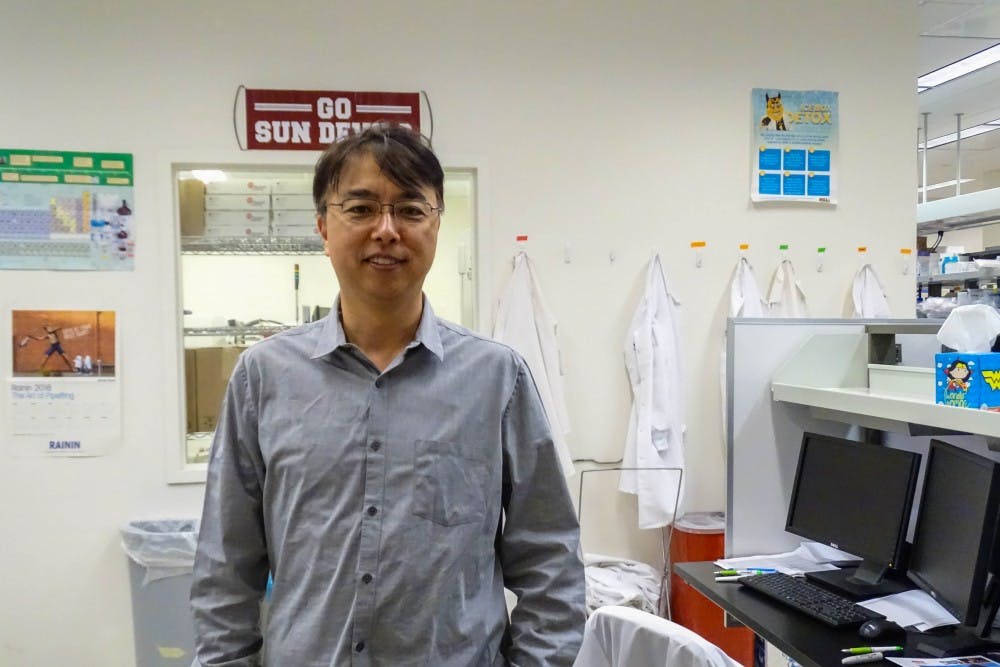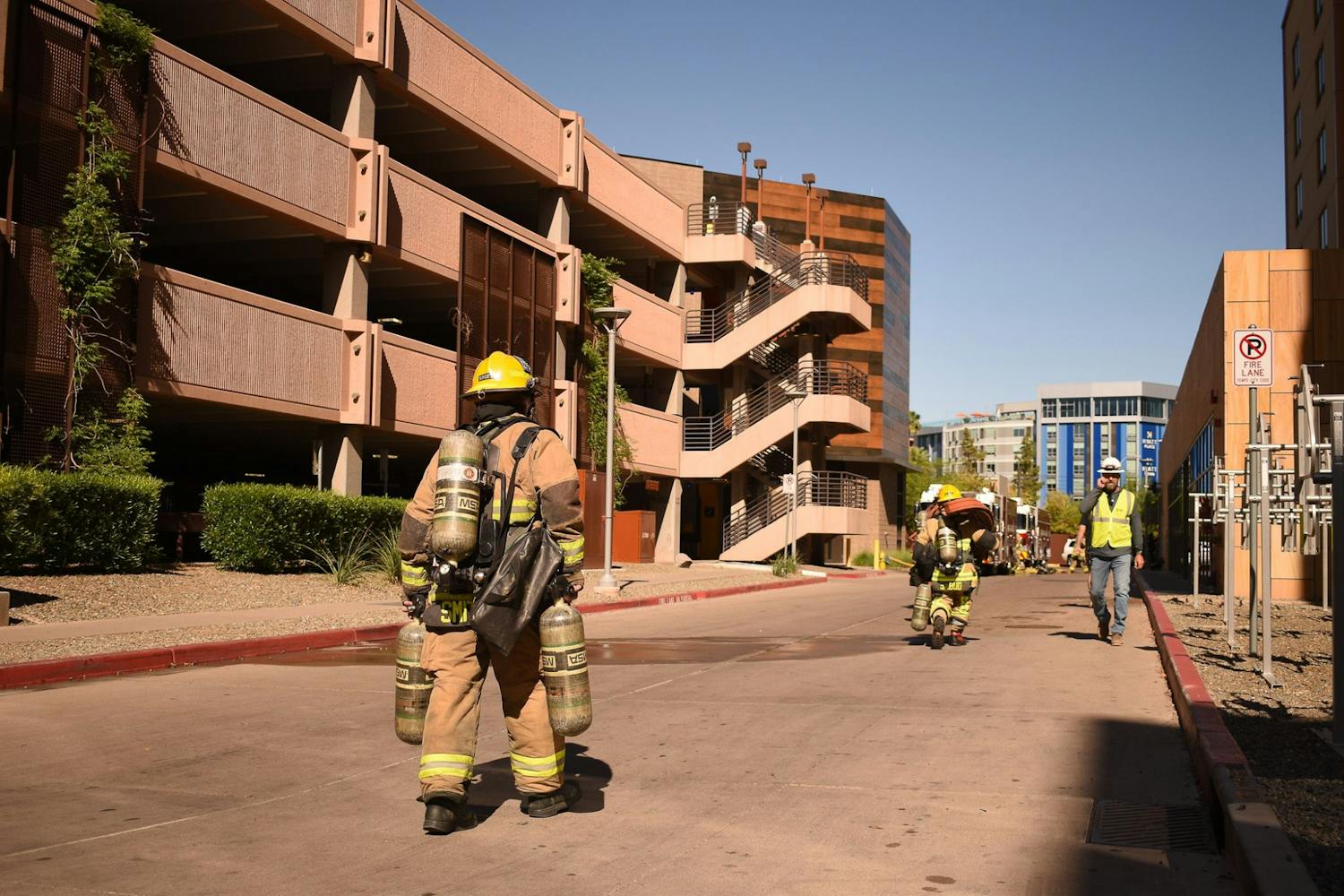Researchers at ASU are trying to find a cheaper method to discover what mutations cause the most aggressive forms of breast cancer.
Jin Park, an assistant research professor in the Center for Personalized Diagnostics at the Biodesign Institute, and Joshua LaBaer, the executive director at the Biodesign Institute, have been working with a method that introduces mutations into cells, known as single cell droplet sequencing.
This will allow researchers to further study which multiple mutation combinations cause cancer cells to form by looking at the individual cells.
LaBaer said that “cancer results from multiple genetic changes that occur in cells,” so when the DNA of a cell mutates once, it is not enough change to cause cancer, but when the cell mutates multiple times it has the potential to mutate irregularly and become a cancer cell.
Park said that triple negatives are one of the most aggressive subtypes of cancer because they lack estrogen receptors, progesterone receptors and HER2, which cancer drugs target. Triple negative breast cancer makes up about about 25 percent of all breast cancer patients, Park added. However, additional research shows this number can range from 10-25 percent.
Since the team cannot focus on every single type of cancer, they have decided to focus their studies on this specific type of cancer, even though it isn't always the easiest to find.
“The challenge is to know which multiple events occur at any given time that lead to cancer,” LaBaer said.
Although the researchers have been working on this study for five years now, their work has just begun.
“From a collection of about a thousand samples from breast cancer patients, you can find mutations in about 5,000 genes,” Park said.
LaBaer and Park’s lab has already created the method for introducing single mutations into cells and later introducing multiple mutations in those same cells through continuously separating the cells with the use of gene-editing technology known as CRISPR.
Now the team will use the single cell droplet method to figure out how to tell which combination of cells in a single cell will cause this type of cancer and which won't.
“Cancer cells are not all individually the same," professor in the Biodesign Center for Personalized Diagnostics Karen Anderson said. "They have unique patterns of mutations within each individual cell."
She said that cancer cells grow and divide while acquiring and accumulating different mutations, and the challenge right now is understanding the diversity of individual cells.
Researchers have the ability to isolate hundreds of cells and sequence them using their DNA, RNA or other parts of their nucleic acid, but this isn't always the most economical approach.
“When we start to do it for a lot of cells, it ends up being very expensive and very time consuming," Anderson said. "So there are a lot of emerging technologies that people are working on to improve single cell analyses to be able to do sequencing across thousands or hundreds of thousands or even millions worth of individual cells all at once."
There are several different groups, like LaBaer and Park, that are working on more rapid ways of being able to do single cell analyses for a much cheaper cost.
“The ultimate goal of the project is to be able to look at multiple genetic events that occur in a single cell and determine which ones occurred together,” LaBaer said. "We imagine that certain gene combinations lead to cancer and other gene combinations don't."
Moving forward in their research, these scientists have written multiple grant proposals in an effort to obtain more money so that they can accomplish the task of discovering the cell mutation that causes triple negative breast cancer.
Reach the reporter at karichm1@asu.edu and follow @Kellyarichmond3 on Twitter.
Like The State Press on Facebook and follow @statepress on Twitter.





